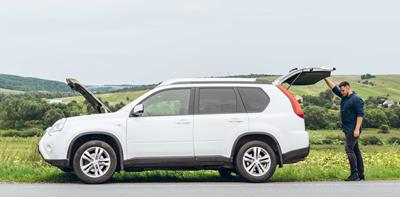
As your children grow, they’re likely to go through at least a couple of car seats. But what do you do with an old one once they’ve outgrown it?
You might think the responsible thing to do is to recycle it. After all, children’s car seats can be large and bulky and are made from mostly recyclable material. They’re certainly expensive to buy in the first place, so you would hope they wouldn’t be destined for the waste tip. But, unfortunately, this is usually what happens.
Heading for landfill
Car seats are essential for keeping your kids safe in the car. Your child needs one right from birth, up to when they reach 12 years old or 135cm tall, whichever comes first. During that time, families could use at least two or three different-sized seats.
This means that a vast number of car seats are manufactured and bought in the UK every year: an estimated 2.1 million, according to jmda Global Product Design.
But calculations from the Local Government Association (LGA), which represents councils in England and Wales, estimate that 90% of these old car seats end up in landfill.
The challenges of recycling
An estimated 250,000 child car seats reach their end of life every year. But there isn’t yet a viable, widely-used way of recycling them. They’re generally too difficult to take apart and recycle due to the mix of materials they contain.
Simon Ellin, chief executive of the Recycling Association, told the BBC that manufacturers face the challenge of creating a fully recyclable car seat which still protects the child.
But environmentally conscious parents and consumer groups are calling for change. The LGA wants manufacturers to recycle their own child car seats and offer take-back services, so parents can return them instead of just throwing them away.
They also suggest car seat retailers should offer trade-in incentives – such as vouchers – for parents who bring in their old seat to be recycled. American retailers Target and Walmart have both run trade-in events; at one such event, Walmart collected more than 1 million car seats that would otherwise have been destined for landfill.
David Renard, LGA environment spokesman, said: “Having to treat child car seats as waste is scandalous and is extremely frustrating for councils and parents who want to dispose of these seats responsibly.”
Manage your account online
It's easy to manage your insurance online - make a change, review your cover, renewal options and more.
Why not give away or sell your old child car seat?
If your child’s old car seat can’t easily be recycled, you might think you could sell it. But parents are advised not to buy used child car seats. You don’t know their history and they may have been damaged in an accident, even if there isn’t any visible damage.
An alternative way of breathing new life into your used car seat might be to pass it on to a friend or family member. But this may not be advisable either, as car seats have expiry dates, after which they can’t be guaranteed to properly protect your child. These dates – which are usually around eight to 12 years from the date of production – can be found on the car seat itself or in the instruction manual.
But why do car seats have expiry dates? Manufacturer Maxi Cosi says its seats are only safety tested for the expected lifespan of the seat – once it’s past that date, it’s time to discard it and buy a new one.
However, you might want to upgrade even before a seat hits its expiry date. Not only is it possible that your child has outgrown it, but child car seats are also constantly being improved and upgraded, and there may be a safer alternative on the market.
If you do dispose of a seat after it has reached its expiry date, to avoid someone else finding it and using it – and potentially putting their own child at risk – Maxi Cosi advises removing the fabric from the plastic, cutting the straps, and detaching as many parts as possible to make the seat impossible to put back together again.
So, in short, your options for making any sustainable use of your old child car seats are currently limited. But the pressure is on for manufacturers and retailers to change this and enable mass recycling of car seats in the future.


